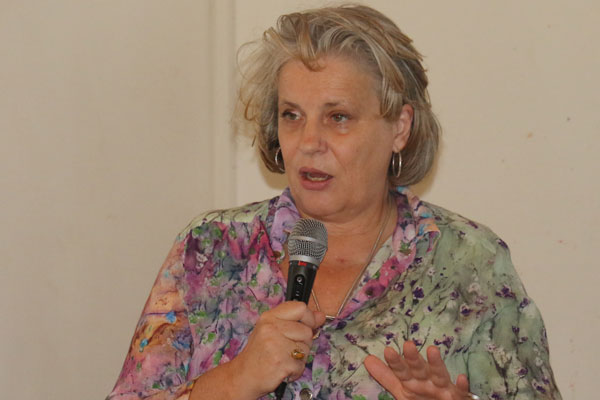
BY OWN CORRESPONDENT
Sexual and reproductive health remains the leading health issue in young people globally, despite effective interventions and international investment in programmes and services. A key reason is the lack of understanding of the needs of young people leading to a lack of appropriate services.
Last week Hivos Regional SRHR Fund together with Restless Development and the Biomedical Research and Training Institute (BRTI) in partnership with the London School of Hygiene and Tropical Medicine organised a dissemination meeting for relevant stakeholders to present the findings of a pilot of a Youth Researchers Academy (YRA) in Zimbabwe. The YRA was an initiative to train youth to conduct research on adolescent Sexual and Reproductive Health and Rights (SRHR). During the dissemination meeting youth researchers, including youth with disabilities, presented their findings from research they conducted, mentored by researchers at BRTI and Restless Development, on SRHR issues young people face in Zimbabwe. The youth researchers hope that their findings will inform and influence systems and policies that affect young people’s access to SRHR services.
Giving opening remarks at the dissemination meeting, Hivos Regional Director for Southern Africa Tanja Lubbers said, “there has been increased recognition that young people should not only be passive beneficiaries or targets of services or programmes, but also equal partners in developing, shaping and delivering services to make them more appropriate, relevant and acceptable. We have been very happy to see that the YRA has strengthened the capacity of young people to undertake targeted research and evidence gathering on challenges and solutions to improving Adolescent Sexual and Reproductive Health service delivery, and to have them own these processes and outcomes”.
One of the youth research groups worked with Nzeve Trust to research the SRHR needs of the deaf youth in Mutare. During the meeting, they presented some of the factors that affect the deaf community in accessing SHR information and services, saying “Lack of communication (sign language) in the family and in health care settings — makes it difficult to get support to access information and services”. Another member of the group added: “Most deaf persons are illiterate.
Some of us have tried to communicate with health officials, through writing and drawing, but they miss the message. Our biggest worry is taking the wrong medication because the health staff cannot explain how we should take our medications. We end up relying on friends to help us with medication to avoid the clinics and hospitals”.
Another research study on Menstrual Health Management (MHM) highlighted issues that affect MHM uptake such as cultural and traditional beliefs about some MHM products. “There are ritual beliefs and suspicions around MHM products. For instance, there are myths surrounding the menstrual cup and issues around virginity. Most adolescents have dismissed the menstrual cup saying they might lose their virginity if they use the menstrual cups”, said the presenter.
A research project investigating the challenges and facilitators in accessing youth friendly SRHR services in Mutare, found issues related with stigma, religion, privacy and lack of confidentiality. “Mutare is dominated by members of the apostolic sector and they have their religious beliefs. It is, therefore, difficult to advocate for SRHR in this community. Members of the apostolic sect need to be educated on the benefits of SRHR services to prevent unwanted pregnancies, sexual abuse and forced marriages”, one of the presenters said.
- Chamisa under fire over US$120K donation
- Mavhunga puts DeMbare into Chibuku quarterfinals
- Pension funds bet on Cabora Bassa oilfields
- Councils defy govt fire tender directive
Keep Reading
The Youth Researchers Academy came into action in October 2018 with support from the Swedish Embassy in Zambia. It was launched to provide an opportunity for young people to take ownership of their SRHR agenda and actively inform and determine their Adolescent SRHR needs.
The dissemination meeting, held at Unicef, was well attended by a wide range of stakeholders from NGOs, CSOs, UN agencies, ministries and donors.
In the closing remarks, Head of Development Cooperation at the Embassy of Sweden Mette Sunnergren highlighted that her country places great importance on SRHR and applauded the fostered capacity demonstrated, showcased through the quality and relevance of researches conducted.
“I am amazed at the level of information shared and my hope is to see these results being used in programming and policy formulation. If adequately utilised, this evidence will go a long way in informing and influencing health systems that affect young people’s access to sexual and reproductive health and rights services, and information,” Sunnergren said.










